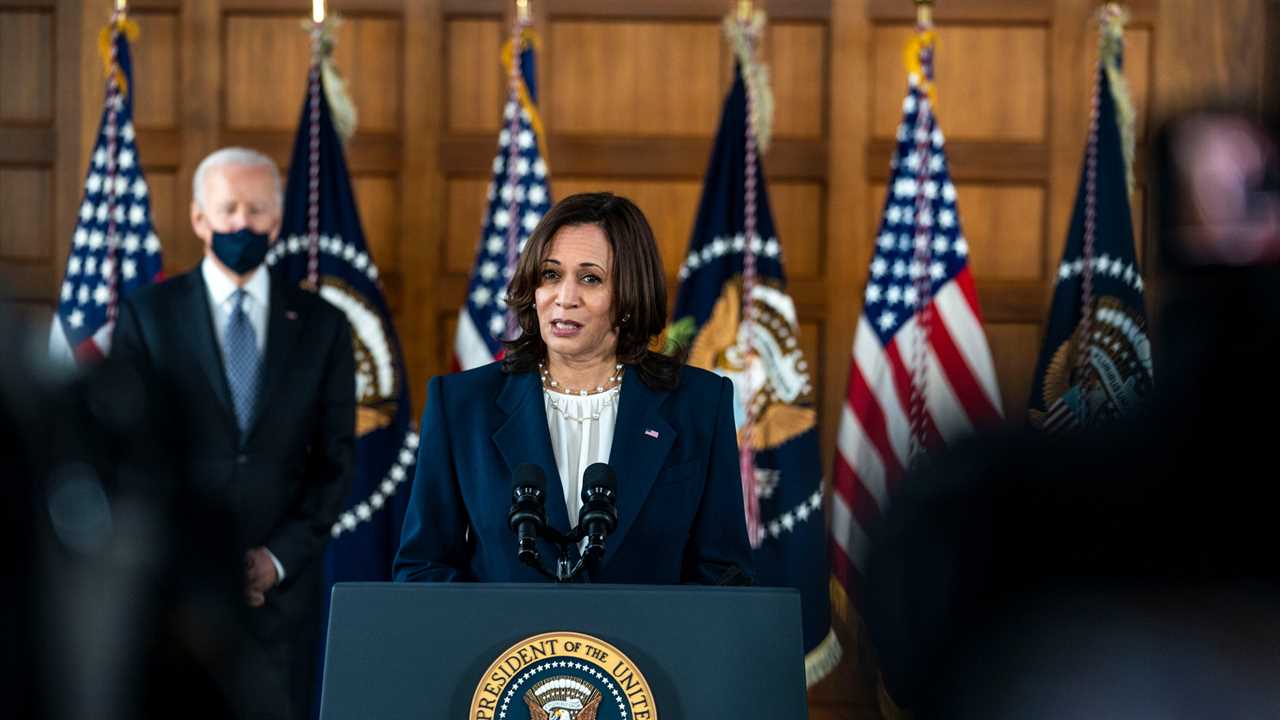
WASHINGTON — President Biden and Vice President Kamala Harris traveled on Friday to Atlanta to express grief for the victims of a mass shooting that left eight people dead, six of them women of Asian descent, describing the tragedy as part of an increase in racially motivated violence and pledging to take action against hate and discrimination.
The gruesome shootings on Tuesday in Atlanta thrust Mr. Biden and Ms. Harris into the middle of a national struggle to confront the harassment and violence against Asian-Americans from people angry about the coronavirus pandemic that has killed more than a half-million people.
“They’ve been attacked, blamed, scapegoated and harassed. They’ve been verbally assaulted, physically assaulted, killed,” Mr. Biden lamented after a meeting with leaders of Atlanta’s Asian-American community that he described as heart-wrenching to be part of.
“It’s been a year of living in fear for their lives,” the president said.
Mr. Biden expressed empathy for the victims’ families, who he said were left with “broken hearts and unanswered questions.” And he said Americans should take responsibility for failing to express enough outrage about the targeting of people of Asian descent during the pandemic that has gripped the country.
“Because our silence is complicity,” he said. “We cannot be complicit. We have to speak out. We have to act.”
Mr. Biden had by his side the nation’s first vice president of Asian descent, who was — just through her presence — a powerful symbol of efforts to reject racial animosity and bias.
“Racism is real in America, and it has alway been,” Ms. Harris said, speaking before Mr. Biden. “Xenophobia is real in America, and always has been. Sexism, too.”
Ms. Harris, whose mother was born in India, confronted the doubts expressed by some, including the F.B.I. director, Christopher A. Wray, about whether the killings in Atlanta were racially motivated. Investigators in Cherokee County, Ga., where some of the victims were targeted at a spa, have said that the gunman told them that he had a “sexual addiction” and had carried out the attacks as a way to eliminate temptation.
The vice president offered little doubt about what she believed and whom she blamed for stoking the violence, alluding to — without directly naming — former President Donald J. Trump, who repeatedly blamed the pandemic on what he called the “China virus.”
“For the last year, we’ve had people in positions of incredible power scapegoating Asian-Americans,” she said. “People with the biggest pulpits spreading this kind of hate.”
The Biden administration, she said, would not “stand by” in the face of racial violence.
“Whatever the killer’s motive, these facts are clear,” she said. “Six out of the eight people killed on Tuesday night were of Asian descent. Seven were women. The shootings took place in businesses owned by Asian-Americans. The shootings took place as violent hate crimes and discrimination against Asian-Americans has risen dramatically over the last year.”
Anti-Asian attacks have soared during the past year, part of a pattern that Mr. Biden called “wrong” and “un-American” last week during a speech at the White House. On Friday, he, too, appeared to blame Mr. Trump and his supporters without naming them directly, saying, “We’ve always known words have consequences.”
The moment is a delicate one for Mr. Biden — a new president commanding the country’s most important bully pulpit in the middle of grieving and racial reckoning.
Among those who met privately with Mr. Biden and Ms. Harris before the speeches was Marvin Lim, a Georgia state lawmaker who said that he felt “powerful and privileged” to represent the Asian-American community at such a raw time, and that he felt gratified that the new administration had taken the time to come and listen.
He said he was touched by Ms. Harris, who he said ended their session by asking those present to tell their community members that “they are not alone.”
After his public remarks about the shootings and Asian-American violence, Mr. Biden made an abrupt shift in topic, highlighting the administration’s progress in getting people vaccinated and promoting the passage of the $1.9 trillion “American Rescue Plan.”
For all that he promised to act to curb racially motivated violence, Mr. Biden has few quick or easy ways to do so.
The debate over how best to curb mass shootings and hate crimes involves, among other issues, gun rights, mental health treatments, red-flag laws and background checks, all of which tend to be met in Congress with gridlock.
During his first week in office, Mr. Biden signed an executive order directing his government to work toward stopping “anti-Asian bias, xenophobia and harassment.” On Friday, he urged Congress to pass the Covid-19 Hate Crimes Act, which he said would “expedite the federal government’s response to the rise of hate crimes exacerbated during the pandemic.”






